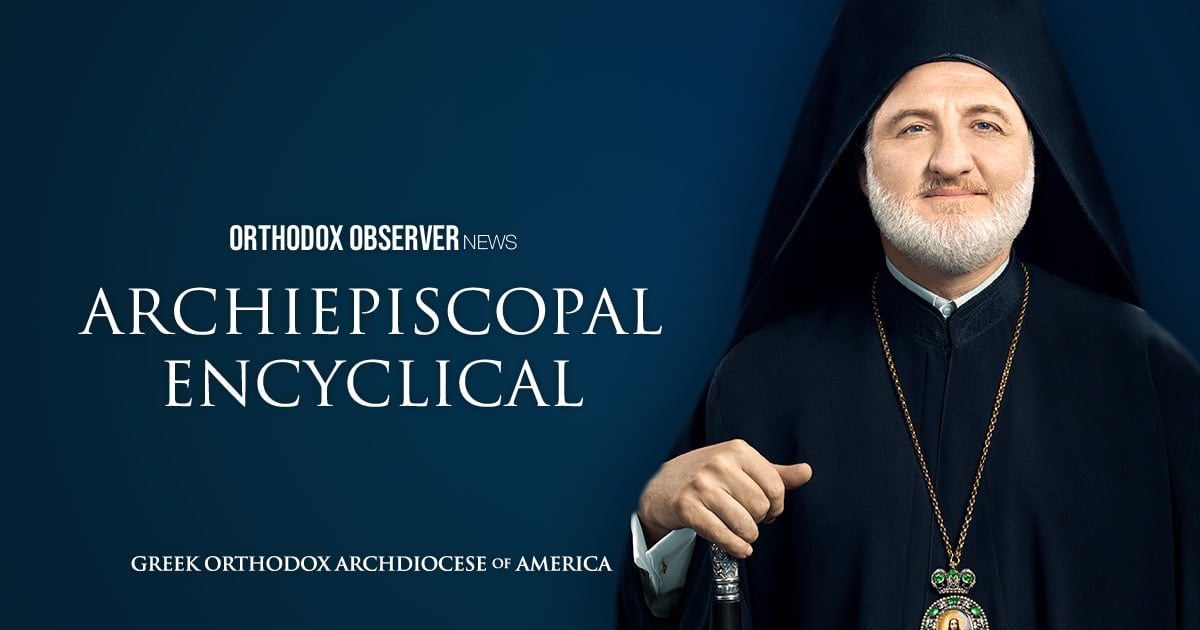Encyclical on the Feast of the Three Hierarchs and the Day of Greek Letters
Prot. No. 18/2021
January 30, 2021
So, from the very beginning, we must examine each of their teachings, to harmonize it with our ultimate purpose, according to the Doric proverb, “testing each stone by the measuring-line.”
(St. Basil the Great, ADDRESS TO YOUNG PEOPLE ON THE RIGHT USE OF GREEK LITERATURE)
To the Most Reverend Hierarchs, the Reverend Priests and Deacons, the Monks and Nuns, the Presidents and Members of the Parish Councils of the Greek Orthodox Communities, the Distinguished Archons of the Ecumenical Patriarchate, the Day, Afternoon, and Church Schools, the Philoptochos Sisterhoods, the Youth, the Hellenic Organizations, and the entire Greek Orthodox Family in America,
Beloved Brethren in the Lord,
The Day of Greek Letters is upon us, the Feast of the Holy Three Hierarchs: Basil the Great, John Chrysostom, and Gregory the Theologian. This Feastday was designed to settle the disputes about who was the greatest of the three. And the answer is … they are all great!
The brilliance of these τρεῖς μεγίστους φωστῆρας τῆς τρισηλίου Θεότητος, “the three great lamps of the Divine Threefold-Sun,” comes not only from their spiritual wisdom and teaching, but from their special appreciation for education in all its forms. Saints Basil and Gregory were graduates of the Academy of Plato. Saint John Chrysostom was regarded as the greatest rhetorician of his age, and studied with a pagan master of the art, Libanius the Sophist. The Three Hierarchs were not afraid of science and learning. Each of them incorporated the very best from the world of their day, and showed the Church how to put knowledge in the service of faith.
We call Basil “Great,” because he exemplifies how a Hierarch of the Church should excel in teaching, in pastoral care of all the flock, and in humility. We call John “Chrysostomos” – the “golden tongue,” because his preaching was so inspiring that his words were held more valuable to the soul than a ransom of kings. And we call Gregory “Theologian,” because his orations are filled with the true and Orthodox teaching of the Holy Trinity.
Each of these geniuses infused their spiritual work with all the precious elements they found in Greek Literature and Παιδεία. They all subscribed to the same Doric proverb cited by Saint Basil above, which Saint Gregory also repeats in his Letter xxxviii, and Saint John Chrysostom in his Homily xxv. The wise builder measures each stone as he constructs his house. And as we construct the houses of our souls, we must also measure the material we use. Is it edifying or merely entertaining? Is it wholesome and conducive to our spiritual growth?
The Three Hierarchs found in the libraries of Classical Greece a wealth of knowledge and instruction, and we may find the same for ourselves and our children. Let us celebrate their memory and honor their legacy, by recommitting to preserving our language, culture, and the vast treasure that is Hellenic Παιδεία, which is our rightful inheritance, following in the footsteps of the these “three great lamps of the Divine Threefold-Sun.”
With paternal love in Christ Jesus,
† ELPIDOPHOROS
Archbishop of America

